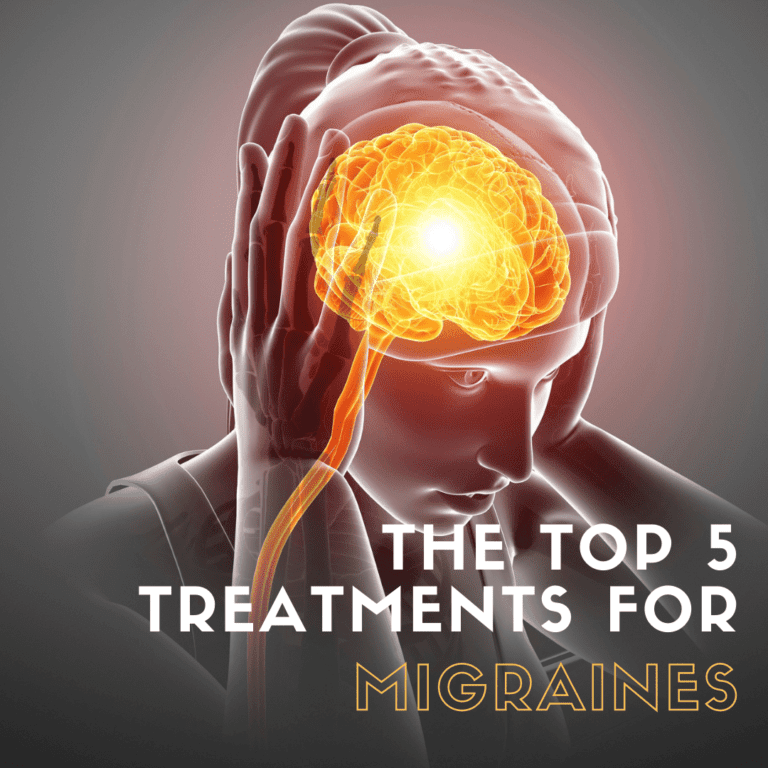If you suffer from frequent migraines, you know that they are no joke. Therefore, when it comes to treating migraine symptoms such as pounding head pain, nausea, and sensitivity to light and sound, you want something that is both effective and fast acting. However, part of the problem with treating migraines is that not all treatments affect people the same way. This can mean that you may need to try a few different things before you find something that works for you. This can also mean that you may need to switch treatments from time to time if something stops working. While there are a variety of migraine treatments, here are the top 5 most effective treatments for migraines:
Botox
While many people think that Botox is only used by cosmetic specialists for reducing the appearance of wrinkles, this is only one of its main applications. Onabotulinumtoxin-A is a neurotoxin produced by Clostridium botulinum that can block signals passed from the nervous system to the muscles. When a small amount of this toxin is injected into the muscles on the scalp and temples, it can be used to decrease both the severity and frequency of migraines by blocking the chemicals responsible for pain transmission.
IV Infusion Therapy

IV infusion therapy has been provided for years by emergency rooms to quickly and effective relieve severe migraine symptoms. However, sitting in an emergency room waiting room for hours with a migraine is usually the last thing you want to do. For this reason, many neurologist’s offices are now offering their own in-office outpatient IV infusion therapy sessions. These sessions usually last about two hours and use an intravenous catheter to deliver a cocktail of migraine medications designed to treat active migraine symptoms, as well as to prevent future migraines. And since these medications are delivered through an IV, results are almost instantaneous and highly effective at reducing a number of migraine symptoms.
Natural Remedies
There are some natural remedies that have been shown to decrease migraine symptoms in some people. For example, inhaling or applying lavender oil to the temples can reduce the severity of a migraine. Applying peppermint oil to the forehead and temples has also been associated with relieving migraine discomfort. Finally, ginger can be used to alleviate nausea associated with migraines, as well as to decrease the severity of the migraine. However it is important to note that while natural remedies can be helpful in some cases, they are usually not as effective as other migraine treatments.
Prescription Medication

If you have frequent migraines, your doctor may prescribe medications that are specifically designed for managing migraines. These medications are usually divided into preventive and abortive medications. Preventative medications help to decrease the frequency of migraines, while abortive medications are used to decrease the severity of current migraine. Prescription medications used to treat migraine headaches include triptans such as Sumatriptan (Imitrex), Zolmitriptan (Zomig), Rizatriptan (Maxalt), Almotriptan (Axert), Eletriptan (Relpax), Naratriptan (Amerge), and Frovatriptan (Frova). Ergot alkaloids such as dihydroergotamine (DHE) can also be used to relieve symptoms. In some cases, non-migraine specific pain medications such as nonsteroidal anti-inflammatory drugs and analgesics can also be used to relieve symptoms.
Prevention
One of the best ways to treat a migraine is to prevent it from ever happening in the first place. Some prescription drugs, such as tricyclic antidepressants, beta-blockers, calcium-channel blockers, and some anticonvulsants, are designed to prevent migraines and can be taken regularly to decrease the frequency of migraines. Additionally, there is also evidence that vitamin B2, magnesium, and CoQ-10 can be taken to reduce the frequency of attacks.
However, prevention also includes identifying, recognizing, and managing migraine triggers. For example, things like skipping meals, hormones, glaring lights, strong odors, high altitude, alcohol, certain foods caffeine, abnormal sleep patterns, and stress can all lead to a migraine. Keeping a log on what triggers migraines can help individuals identify possible triggers that may need to be managed.

Dr. Kashouty, a diplomate of the American Board of Psychiatry and Neurology (ABPN), practices general neurology with fellowship trained specialization in clinical neurophysiology. Dr. Kashouty finds the form and function of the nerves and muscles the most interesting part of neurology, which is what led him to specialize in neurophysiology with more emphasis on neuromuscular conditions. He treats all neurological diseases, but his main focus is to treat and manage headaches, movement disorders and neuromuscular diseases.




